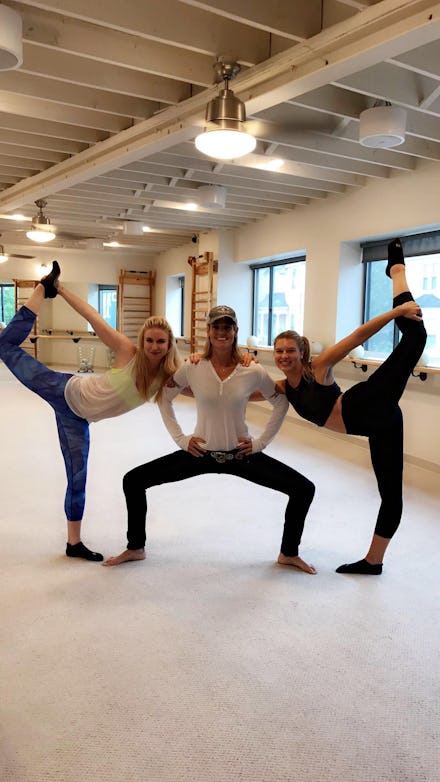2018 Winter Olympics: Swimmer Dara Torres on adjusting to life after Olympic fame

During the Olympics, thousands of athletes will push themselves to peak professional success — from personal records to medals — as the world watches on.
But what happens when the spotlight dims? For athletes who have been so focused on a singular goal, life after the Olympics can be both daunting and underwhelming.
Mic caught up with 12-time Olympic medalist Dara Torres, a former world record-holder who has twice taken a break from swimming before returning to the sport to rack up more accomplishments. Torres is particularly well-suited to talking about the ups and downs of post-Olympic life: After withdrawing from competitive swimming for seven years, she qualified for and competed at the 2000 Summer Olympics in Sydney, winning five medals. When Torres was 41 and competed in the 2008 Summer Olympics in Beijing, she became the oldest swimmer to represent Team USA.
Her training and exercise regimen changed drastically when she retired from competing after trying for the 2012 Olympics. “It was sort of a process, going from training like five or six hours a day to doing two hours after I retired,” Torres said in a phone interview with Mic. “[Two hours] was still kind of a lot for someone who’s not really training anymore.”
Torres said she felt “a sense of loss” while transitioning from competitive sport to regular life. “A lot athletes even get depressed,” she added. “I wish there was a program for athletes when they retire — kind of segue out of something they’ve done for their whole life [and] start the next chapter of their life.”
Torres didn’t swim for an entire year after she retired for good in 2012. “I started boxing, then I started doing barre [classes], spinning classes. It’s kind of fun to mix it up, to give your mind and body a break from what you’ve been doing your whole life,” she said. Though Torres swims about once a week with the Charles River Masters Team, she doesn’t compete. (“I’ve done enough fast swims in my life, I’m all about relaxation and just getting some exercise in.”)
While swimming is a low-impact sport, the strain of cross-training during her competitive career took a toll on Torres’ body — so much so that she needed a knee cartilage transplant in February 2017. The surgery left her looking for a way to exercise her glutes without taxing her knee, and an acquaintance suggested Torres try out a bar class at Bar Method, a boutique fitness studio near her home in Massachusetts.
“I was like, ‘Stop right there, I’m not dainty, I’m like a jock,’ and he said, ‘No, trust me, it kicks your butt,’” Torres said. “I tried it and I fell in love. It’s not like you’re doing pliés in the air or anything, it’s a great total body workout.” Torres is now on her way to becoming an instructor and co-owner of the Bar Method location in Wellesley, Massachusetts.
Torres said she tries her best to lay low in this latest chapter of her life. Though she doesn’t wear her Olympic gear, she does find that her status as an Olympian comes in handy as a barre instructor: People are extremely receptive to her adjustment advice, like when she instructs clients to use a lower weight so they don’t injure themselves.
As a barre instructor, she still feels the rush of a competitive spirit. “I find myself listening to other instructors, and I’m like, ‘OK, how can I make mine better?’ [Competition] is in my genetic makeup,” Torres said, explaining she used to race her siblings to the family car and to the dinner table as a child.
“Sometimes my husband and I will compete in things, but I try to tone it down a lot so my daughter isn’t as crazy as I was,” she said.
Nevertheless, when her daughter was 2, she would always want to race Torres to the kitchen. “I’d be like, ‘Oh, she’s definitely my kid.”